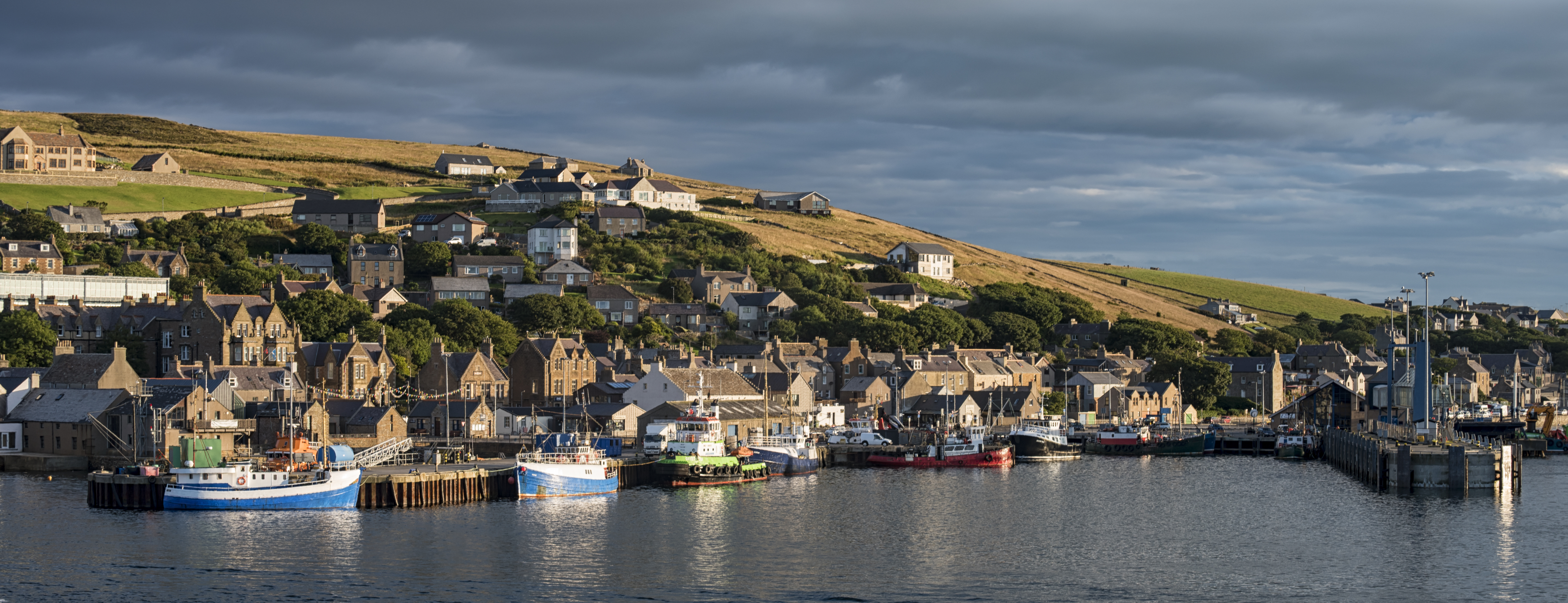Orkney Islands, United Kingdom
The Orkney Islands are an archipelago with a population of approximately 20,000 people off the north coast of Scotland. The locals are being called Orcadians and have a distinctive Orcadian dialect of Scots with a rich inheritance of folklore. Traveling through the Orkney Islands will take you to many ancient monuments, stone circles and tombs that are testament to its Unesco World Heritage Site status.
The Orkney Islands generate more than 100% of electricity demand by renewable energy and have an operational smart grid
The Orkney Islands and energy
While the smart grid installed by the local Distribution Network Operator (DNO) has increased the capacity available for new generation, there are still significant constraints which limit further development and reduce the output of operational generation. Because of the regulatory structure of the UK electricity sector, it is difficult for the DNO to directly implement additional energy storage or demand response and receive the full commercial benefit, as this could involve activities classes as generation or energy supply, which are forbidden for DNOs under the UK’s fully liberalised energy system.
Despite the high levels of renewable generation, electricity demand tariffs are above the UK average, and many homes are heated by oil or solid fuel. Combined with the northerly climate, poorly insulated housing stock, and local income levels, Orkney has some of the highest recorded levels of ‘fuel poverty’ in the UK. Fuel poverty is defined as a household having to spend more than 10% of its income on heating.
As an archipelago of islands, Orkney is highly dependent on both ferry transport and imported fuel for farming, fisheries and local road transport. While the number of electrical vehicles (EV) is increasing and alternative green fuel supply chains are being developed, there is currently no system for integrating smart charging and hydrogen production with wider network conditions.
The Orkney Islands and SMILE
The goal of the pilot is to address existing energy challenges by integrating a new Demand Side Management system with the existing smart generation grid. This will provide intelligent control and aggregation of electric heating systems in homes, businesses and council buildings, as well as EV charging points and hydrogen electrolysers.
This project builds on previous smaller scale trials which demonstrated viable control technologies, communication systems, and commercial arrangements, for integrating with the existing smart grid. A distinctive aspect of the project is that demand response services will be delivered by a new local energy company, which will be a consortium of local generators and other stakeholders. The system specification and operating parameters will be approved by the DSO, which will also retain final oversight of the system, but day to day management will be undertaken by the local company and its contractors.

This project has received funding from the European Union’s Horizon 2020 research and innovation programme under grant agreement No 731249.
This website reflects only the author's view. The European Commission and the Innovation and Networks Executive Agency (INEA) are not responsible for any use that may be made of the information it contains.


